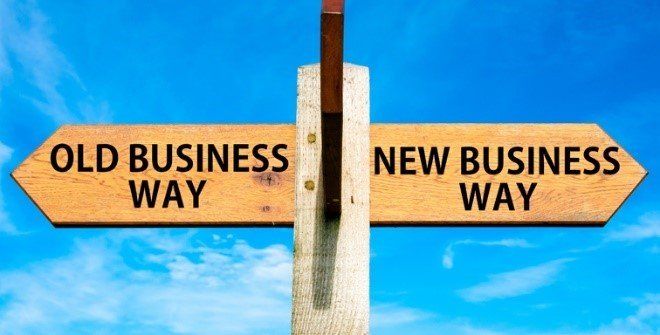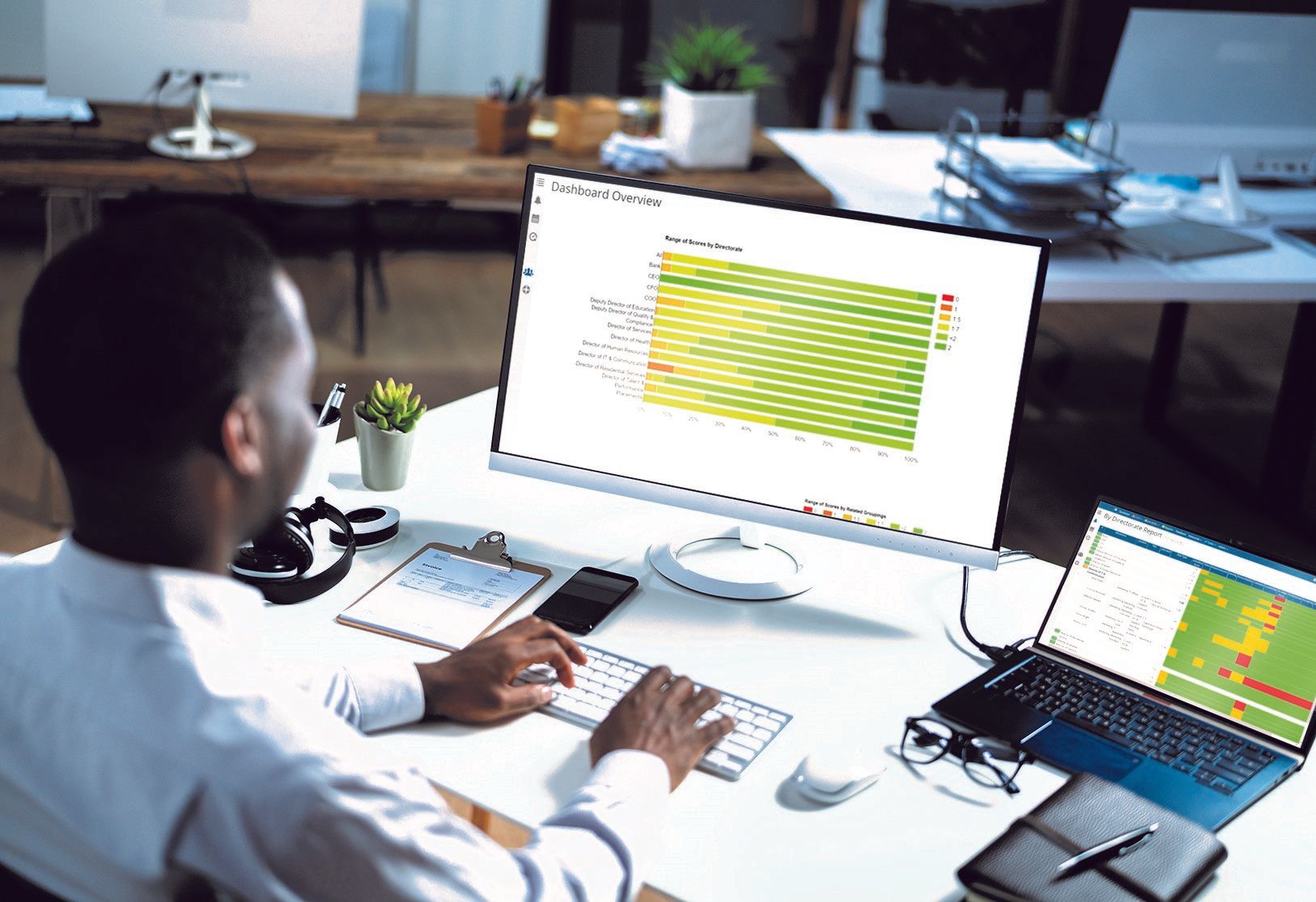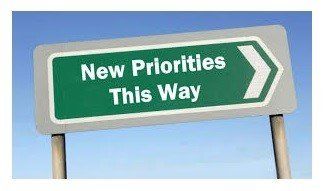How are organisations adapting to the 'new normal'? - Part 7
Jane Baalam
June 27, 2020
What do you need to handle the change? What resources will be required - is it time, money, people?

The Senior HR Network conducted a series of interviews with our extensive network of leaders from a multitude of industries both public and private sector, all above SME level, based nationally and internationally to understand their recent Covid-19 experience. Together we explored what life was like immediately after the announcement of ‘lockdown’, their experience thus far and their current thinking around managing ongoing change, transition and the future state.
Our final article asked:
‘What do you need to handle the change? What resources will be required? Time, money, people’?
In previous articles we saw concerns about returning to previous levels of delivery while at the same time managing unplanned workforce reductions and the implementation of planned transformation projects. Many organisations indicated that they would be conducting operating model reviews; this was both for cost management purposes but also to ensure viability and relevance now that “going back” was not an option. For some this was a necessity for survival. For others COVID-19 was an opportunity to make changes that would have been unthinkable before.
In response to these themes, we asked what resources leaders would need to handle the change. There were three key areas of concern:
• Personal Resources
– Personal resilience, and time are being pushed to their limits. Resilience is a recurring theme and we have noted that leaders are now more likely to express concerns about their personal resilience, perhaps in response to the need to get staff to ‘open up’ about their issues. Pressures on resilience are often linked with the concept that time is of the essence. “Headspace”, or ‘time to think’ was seen as crucial, but there is no doubt that this will be in short supply because organisations will want/need to move quickly once the lockdown is lifted and leaders must develop a rapid response approach to handling workforce changes and future responses to crises.
• Operational Resources
- In addition, there was also a recognition that not all leaders have the breadth of skills and technical expertise in their current teams to support their organisations in developing future responses. Workforce planning was a key issue, with a sudden focus on what needs to change to make organisations viable again – everything from ensuring that critical roles are identified and succession planning developed, through to managing and modelling the impact of response scenarios and ensuring engagement with change. Other resources included services that are often linked with HR at a leadership level, for example facilities management or health and safety. For those that saw money as a critical area, there is also the recognition that cashflow may not be forthcoming and government funding will be reduced.
• External Resources
– We also saw a recognition that the government has some part to play in enabling the response; for instance, organisations want increased clarity with regards to guidelines/regulations and managing social distancing for smaller offices or on public transport that was seen as a problem and barrier for returning to the workplace physically. Another area of concern was the long-term availability of financial assistance and the impact when the current arrangements are withdrawn.
Our research identifies that leaders know their limitations and recognise that they will need to seek resources/input from external sources to deliver expected changes. What is not clear yet, is whether circumstances will allow our leaders the time to reflect and plan before stakeholder’s demand responses.
As this is the last in this series we felt it would be pertinent to share our recommendations following the rich learnings from the leaders we spoke to that all businesses need to think about including but not limited to;
1. Cost, identify your current and expected trading patterns and consider opportunities to invest, divest or diversify your business model to capitalise on changing or new markets and mitigate for failing markets. Review and eliminate unnecessary practices and costs going forward to enable greater financial resilience and agility should we see a future surge in COVID-19-cases (or another disaster). Cost controls, and options around what you can do to improve efficiency? How do you get clarity regarding your workforce planning? Being able to use this process as a strategic tool to focus on the right resource at the right time on the most significant opportunities will be a win.
2. Future of work undertake a review of the impact of Covid-19 on your business and consolidate your learning in case of future local or national lockdown activity. Think about not only the ‘what’ but the ‘how’. How will you take the virtual working learnings and ensure that your organisational design is optimal? Plan your workforce based upon predicted need, hiring, reskilling, or upskilling your workforce accordingly. Eradicate old cumbersome ways of working and fully embrace a slicker more productive way that opens up cost-saving opportunities, develops streamlined processes, decision making and improves capability all targeted to optimise and build your operation, it is essential.
3. Mental health and wellbeing will be fundamental. Staying close to the health of your people will enable you to safeguard your investment but also ensure that your human resources can be as high performing as they can be mentally and physically. It is great to have the design optimised, investing further in wellbeing, looking after your humans, will naturally ensure they look after you.
4. Employee engagement invests in your management and leadership, to enable them to weather the impact of the ongoing pandemic and to lead your business back to a sustainable future position. Retention and development will embed change. When your organisational design is right, the wellbeing of your people is on point, having your human resources fully engaged unlocking their best self, their strengths and developing those capabilities will reap long term, sustainable, benefit, not only to the individual but their role, your team, customers and bottom line. Having the right tools, development planning, methods will be fundamental.
5. Culture, collaboration and learning together and cultivating a winning mentality will be essential to a sustainable new reality and future growth. Tapping into your core values to drive performance and create the right behaviours to make the most of every opportunity, this is the finale where investment in time will reap huge returns if done well.
If you feel time is potentially getting away from you and that you will need to source extra resources to support you in developing your plans, talk to our experts at the Senior HR Network.
Get in touch with one of us today to see how we can help you.
About the authors
The Senior HR Network was set up to provide senior HR practitioners across the UK and across disciplines to share knowledge, learnings and experiences and expand future thinking in people and organisations.
Andrew Carter, Reward Risk Management Limited
Telephone: 07904439172
Email: andrewc@rewardrisk.co.uk
Telephone: 07904439172
Email: andrewc@rewardrisk.co.uk
Jo Brooks, Aligned HR Services
Telephone: 07788278295
Email: joanna@alignedhrservices.org.uk
Telephone: 07788278295
Email: joanna@alignedhrservices.org.uk
Johanna Hooper, Limitless Peak Performance
Telephone: 07713196730
Email: johanna@limitlesspeakperformance.co.uk
Telephone: 07713196730
Email: johanna@limitlesspeakperformance.co.uk
Kirsty Brooks, People Perform Consulting Limited
Telephone: 0333 577 1319
Email: Kirsty@peopleperform.co.uk
Telephone: 0333 577 1319
Email: Kirsty@peopleperform.co.uk
Richard Frost, People Perform Consulting Limited
Telephone: 0333 577 1319
Email: Richard@peopleperform.co.uk
Telephone: 0333 577 1319
Email: Richard@peopleperform.co.uk
Tina Jennings, Cosán Cróga Limited
Telephone: 07765 060298
Email: tina@cosancroga.com
Telephone: 07765 060298
Email: tina@cosancroga.com
Jane Baalam, Reward Risk Management Limited
Telephone: 07415 974004
Email: janebaalam@rewardrisk.co.uk
Telephone: 07415 974004
Email: janebaalam@rewardrisk.co.uk









